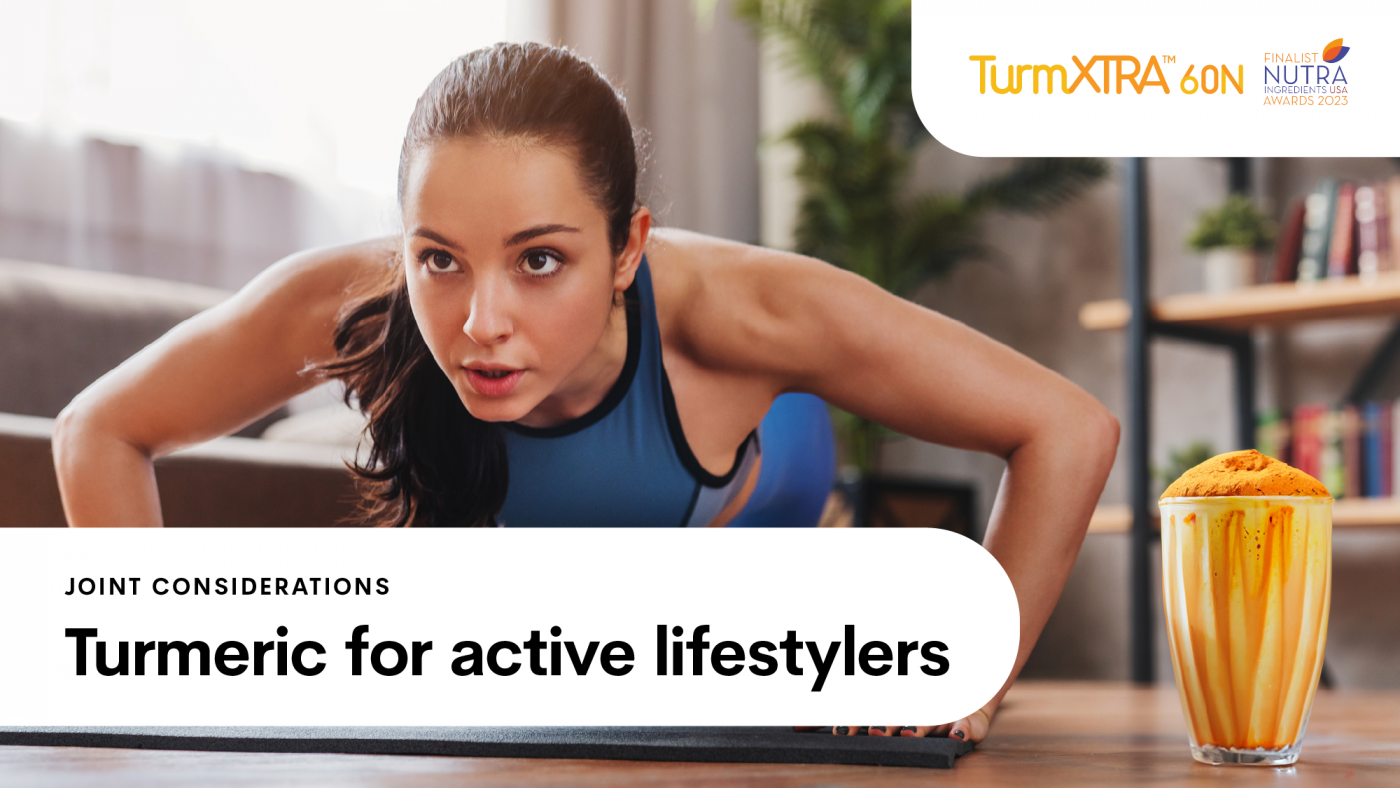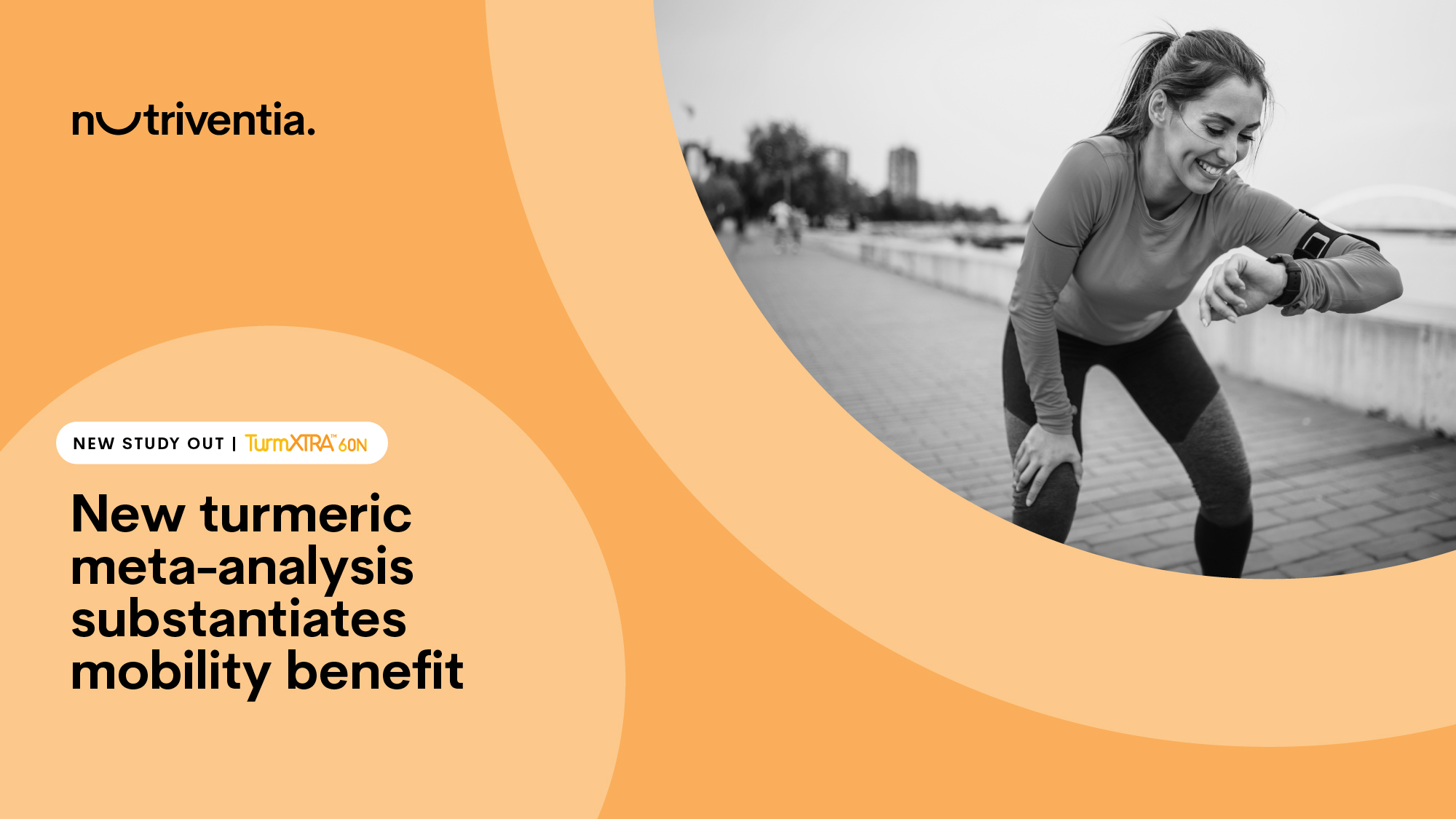Combining stretching and resistance training creates a lean, sculpted physique. However, athletes, fitness enthusiasts and recreationally active adults can also experience joint discomfort and muscle soreness, which tend to be discouraging.
Joint health, protecting their structure to sustain desirable function, is an unsung part of the active lifestyle/sports nutrition segment. But it’s heating up as active and athletic consumers are learning that taking care of their joints now will keep them playing and working out later.
In 2025, according to new market research from Nutrition Business Journal, it is estimated that joint-support supplements will claim approximately 10% of the sports nutrition/active lifestyle supplement market and experience growth at about 9.1%.
The report also finds that “joint support” is the second most important reason sought by sports/active lifestyle nutrition shoppers (28%). A closely related physical concern is inflammation created by repetitive motion on a regular basis, which extends recovery time and can exacerbate muscle soreness. Hence, active lifestylers are turning to the sports/active nutrition product sector to achieve faster recovery (6th on the list at 20%), and reduced muscle soreness (7th, at 15%).
The idea of simultaneously supporting both the major articulations and muscles is a significant joint consideration.
Turmeric: The Joint Health Herb
Consumers are also learning about the relationship between turmeric (curcumin) and joint function and preservation. Turmeric is very well researched, notably for protecting against joint wear-and-tear, inflammation management and reducing muscle soreness.
Several meta-analyses have focused on turmeric’s impact on joint structure and function. One meta-analysis of 16 randomized controlled human trials (RCTs) involving 1810 adults with knee joint impairment found that turmeric extracts significantly reduced discomfort in the knee joint area as well as improved physical function compared to placebo. The authors of this study concluded that turmeric extract “is a safe and effective option” for the symptomatic management knee joint wear and tear. 2
Another meta-analysis of 29 RCTs involving 2396 participants with knee joint compromises shows that consuming turmeric extract (as curcumin) in doses ranging from 120 mg to 1500 mg for between 4-36 weeks improved severity of inflammation and discomfort levels. 3
Turmeric: The Muscle Recovery Herb
Turmeric’s ability to promote muscle recovery is also documented. When muscle fibers break down from high-intensity muscle contractions (eg, weightlifting), it produces a reaction called exercise-induced muscle damage (EIMD). A systematic review focused on how curcumin from turmeric may reduce EIMD and thus promote better recovery and performance. They found that supplementation with turmeric reduced muscle damage through lowering creatine kinase release, increases muscle performance, manages inflammatory response through modulating pro-inflammatory cytokines, such as TNF-α, IL-6, and IL-8. The studies used turmeric (curcumin) at doses between 150-1500 mg/day before and during exercise, and up until 72 hours post-exercise, improved performance by reducing EIMD and modulating the inflammation caused by physical activity. 4
These are just a small sampling of studies showing sports/active benefit of turmeric (curcumin) supplementation.
Selecting the Best Turmeric
So, what defines “best?” A turmeric ingredient that is truly consumer-centric. This means that the sports/active nutrition consumer can enjoy the health benefits along with greater convenience and ease of use.
One (and perhaps the only) turmeric ingredient that fulfills all these values is TurmXTRA® 60N, a standardized, proprietary water-dispersible turmeric extract. It is validated through several clinical trials establishing an effective dose of 250 mg TurmXTRA® 60N, and supported by pre-clinical and human pharmacokinetic trials establishing that 250mg TurmXTRA is bioequivalent of 1575 mg of standard turmeric extract (95% curcuminoids), which require multiple capsules to achieve intended health benefit.
TurmXTRA® 60N: The Joint- and Muscle-Support Turmeric
Meta-analyses that take deep dives into RDBPC trials exploring the relationship between turmeric (curcumin) supplementation and joint and muscle impact, and conclude that the herb is indeed of value for these uses creates a strong platform for R&D.
While these serve as an informational foundation of proof of efficacy, they are general and tend to use generic material. So, brands investing in turmeric product development would want an ingredient that has its own studies, its own proof of efficacy.
TurmXTRA ®60N has two studies clearly showing joint and muscle recovery benefits, for the sports/active nutrition market.
In one RDBPCT, 96 participants consumed 250 mg of TurmXTRA 60N (150 mg curcuminoids) or placebo for 90 days to determine pain score (using visual analogue scale or VAS) after an 80-meter fast-paced walk test. At the study’s end, the supplement group experienced significantly improved completion time in the walk test, VAS score and inflammation biomarker profile. 5
In another randomized, double-blind, placebo-controlled human study, TurmXTRA™60N was assessed for its efficacy in alleviating delayed onset muscle soreness (DOMS) in healthy, recreationally active subjects. TurmXTRA™60N supplementation was found to significantly reduce the intensity of muscle soreness 48 hours after exercise by almost six times compared to the placebo group. Further, the TurmXTRA™60N group improved recovery by almost nine times, 72 hours post-exercise. 6
Sports/active nutrition products that feature turmeric to support joint health and muscle function and recovery should be widely embraced by an enthusiastic consumer base.
References:
- Nutrition Business Journal “Sports Nutrition and Weight Management Report 2023,” Survey launched February 2nd 2023, Last Accessed 06/22/23
- Wang et al. Curr Rheumatol Rep 2021 Jan 28;23(2):11
- Zeng, et al. Front Immunol 2022 Jul 22;13:891822
- Fernandez-Lazaro et al. Nutrients 2020 Feb 15;12(2):501
- Thanawala, et al., Clinical Pharmacology: Advances and Applications 2021:13; https://doi.org/10.2147/CPAA.S307464
- Thanawala, et al. Evidence-based Complementary and Alternative Medicine 2022 https://doi.org/10.1155/2022/9110414



